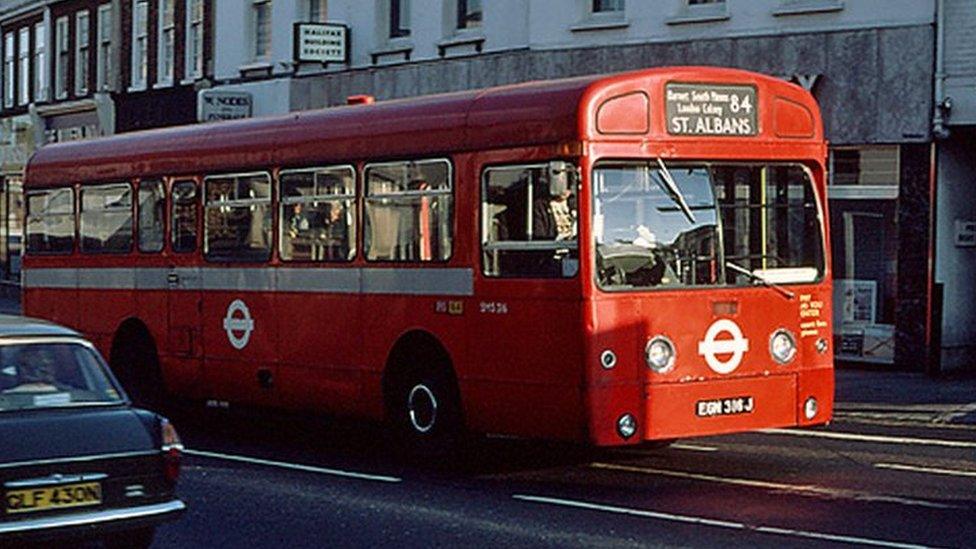Hertfordshire: Covid was catalyst for bus service reduction
- Published
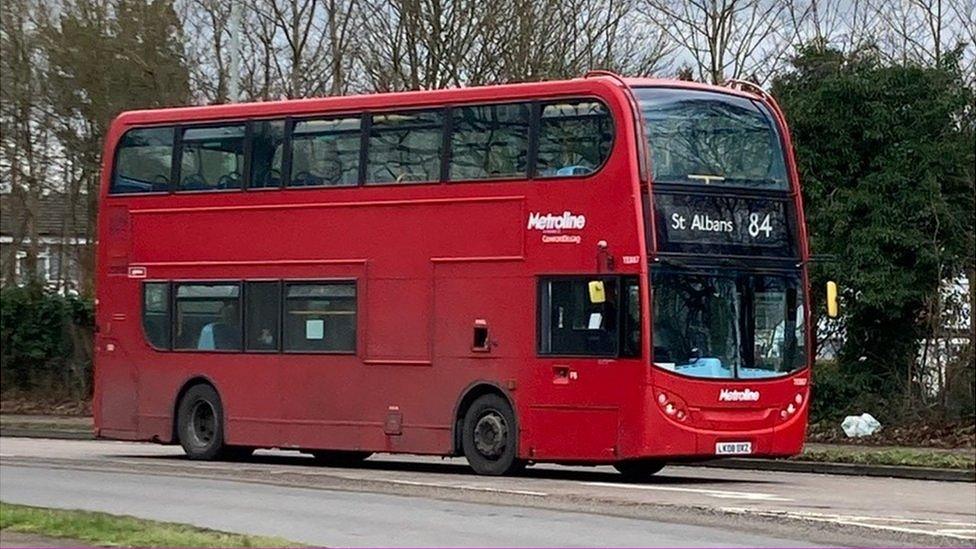
The 110-year-old number 84 bus route between Barnet and St Albans was axed last year and, although a new operator did tak it over, the service now only runs to Potters Bar
The Covid pandemic was the main cause of bus service cuts in Hertfordshire, a council has claimed.
Department for Transport, external data shows the county has had a 56.5% reduction in bus mileage since 2017 - the highest in England.
Hertfordshire County Council said patronage had fallen since 2020 adding there was also a "massive driver shortage" in the area.
Arriva said it had to reduce services to "reflect new passenger demand".
Across the country, the local bus network has shrunk by an estimated 14% between 2016-17 and 2021-22, BBC analysis of Department for Transport figures suggests.
Phil Bibby, the Conservative-run council's executive member for highways and transport, claimed the government figures for 2016 and 2017 were wrong and that the reduction in the county was only about 39%.
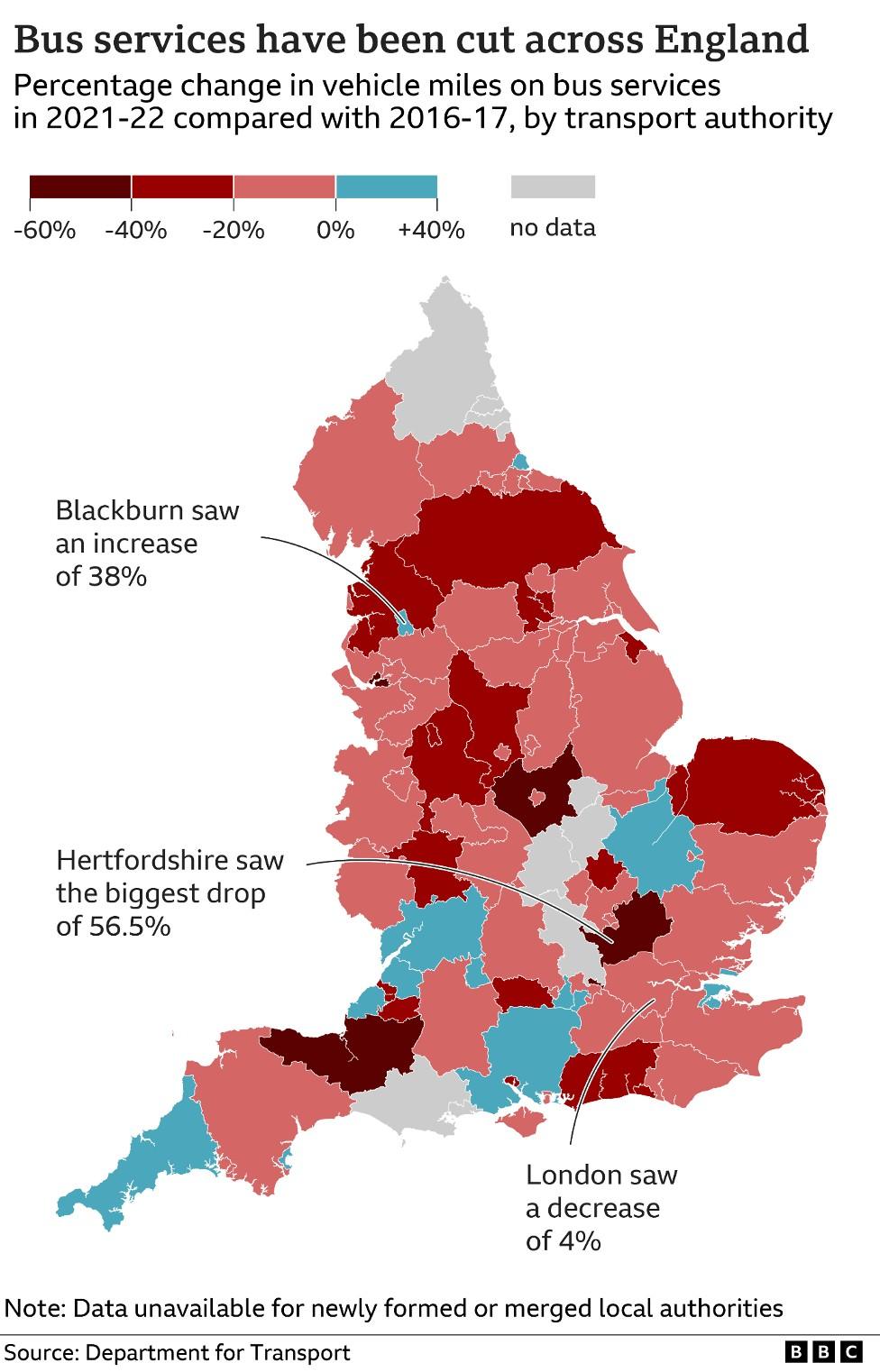
He said the council believed that "Covid has been the catalyst for the major reduction in bus mileage".
"Lots of people don't feel comfortable going on buses now or they are working from home etc, so patronage has fallen," he said, "and there is also a massive driver shortage".
He added that the reason recruitment was so hard was simply that "people don't want to do it anymore".
David Martin, from the Stevenage Bus Users Group, said the area was seeing a reduction in frequency of services from every 15 minutes to every 20 minutes on most routes.
"As a result, people decide that they'll find alternative means of transport, the knock-on effect is the downward spiral of patronage which affects the commercial viability of the services," he said.
In Hertfordshire, the county council subsidises contracted bus services up to about £4m a year, but 95% of bus operators are commercial.
Arriva, one of the county's main bus operators, said it had made reductions to services in "response to the impact of Covid 19 on bus journeys" in order to "ensure our network is reflective of new passenger demand".
"Furthermore, the well documented UK-wide bus driver shortage has also resulted in some service reductions being made, so that we are able to effectively deliver a timetabled service for our customers," a statement said.

Find BBC News: East of England on Facebook, external, Instagram, external and Twitter, external. If you have a story suggestion email eastofenglandnews@bbc.co.uk, external
Related topics
- Published20 February 2023
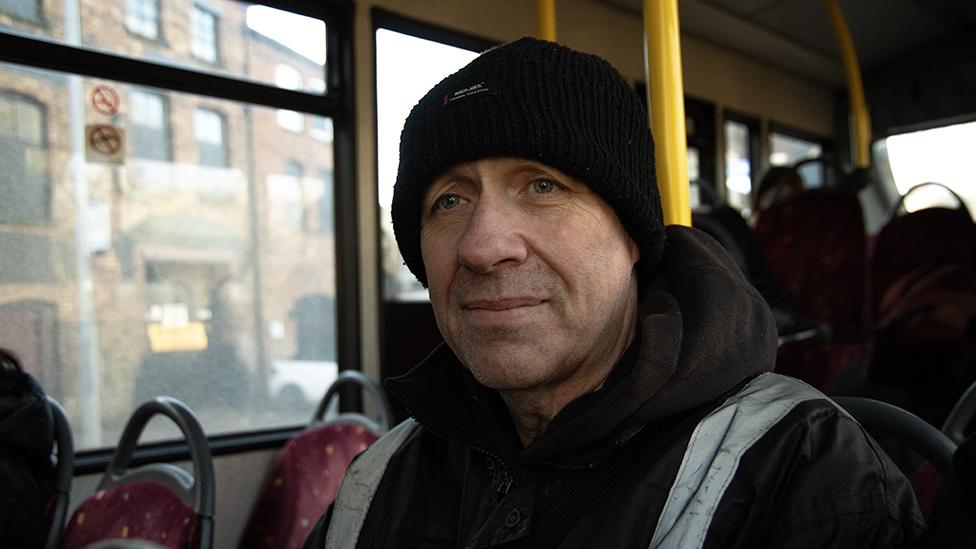
- Published14 February 2022
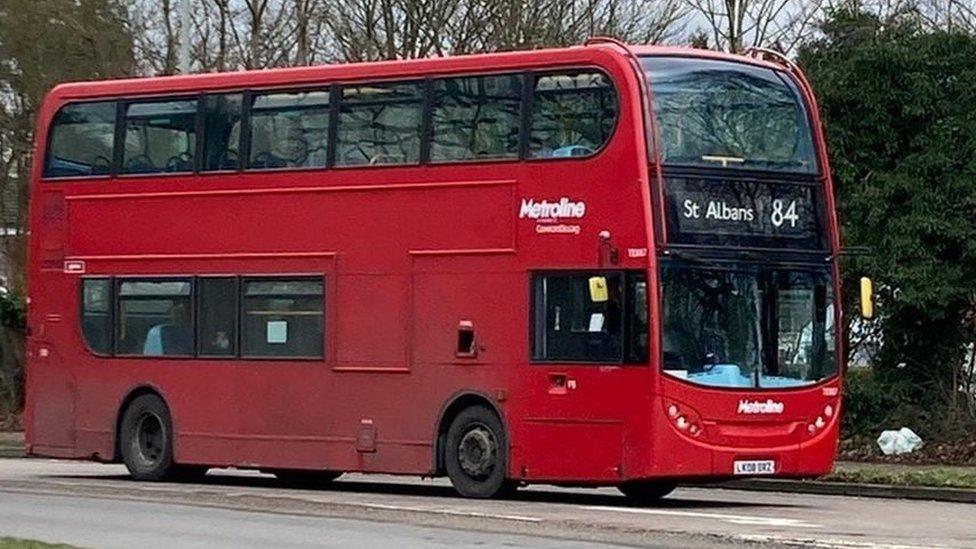
- Published9 February 2022
